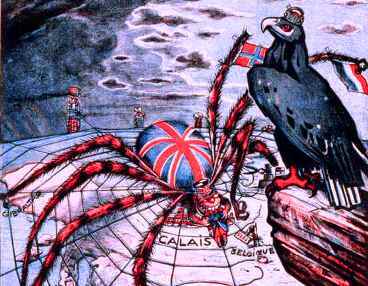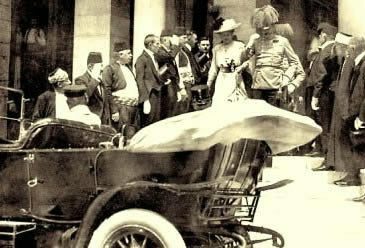Discreet and late. These could be the two words that would sum up Brazil's participation in the conflicts of the First World War. When conflict broke out in Europe in July 1914, the nation's political and military authorities preferred to let Brazil be neutral in relation to combat. In a short time, the decision would be systematically criticized by the National Defense League, a movement led by Ruy Barbosa that defended the Tupiniquim participation alongside the Triple Entente.
However, the political position adopted by the country, supported by some congressmen sympathetic to Germany and the Austro-Hungarian Empire, had to be re-evaluated in 1917. That year, some Brazilian merchant ships were sunk by submarines belonging to German forces. The first attack took place in April, with the sinking of the Paraná ship. The following month, it was the turn of the Tijuca ship.
As a result of these first episodes, Brazil decided to break its diplomatic relations with Germany and carried out the immediate confiscation of forty-two vessels of German origin. On October 23, the Brazilian freighter Macau was hit by a German submarine and had its captain taken prisoner. Under strong popular pressure, the Brazilian authorities declared war against the “German alliance”.
Despite taking a more forceful action, the declaration of war by the Brazilians did not mean the organization of a powerful army. The Brazilian participation was manifested in the sending of doctors and airmen assisted by the patrol of the British forces. In fact, the biggest enemy responsible for most of the national detachment's casualties attacked during the trip. While crossing the Atlantic, around 180 crew members of the Brazilian vessels died from the Spanish flu.
After the end of the war, where no Brazilian died in battle, the nations of the Triple Entente invited the government to participate in the meeting that sealed the Treaty of Versailles, in 1919. Finally, the government of Brazil was awarded an agreement that recognized the right of tenure under the imprisoned German vessels and the redemption of amounts related to the sale of coffee bags, which took place in 1914.
By Rainer Sousa
Graduated in History
Do not stop now... There's more after the advertising ;)
Would you like to reference this text in a school or academic work? Look:
SOUSA, Rainer Gonçalves. "Brazil in the First World War"; Brazil School. Available in: https://brasilescola.uol.com.br/guerras/o-brasil-na-primeira-guerra-mundial.htm. Accessed on June 28, 2021.
wars

Background to World War I, World War I, diplomatic agreements, race imperialist, arms race, Triple Alliance Treaty, Triple Entente, preparations for the First World War.
wars
World War I, Great War, Battle of the Marne, War of Movement, War of Position, Trench War, United States, Russia, Germany, Woodrow Wilson, Armistice de Compiègne, Treaty of the Fourteen Points for World Peace.


